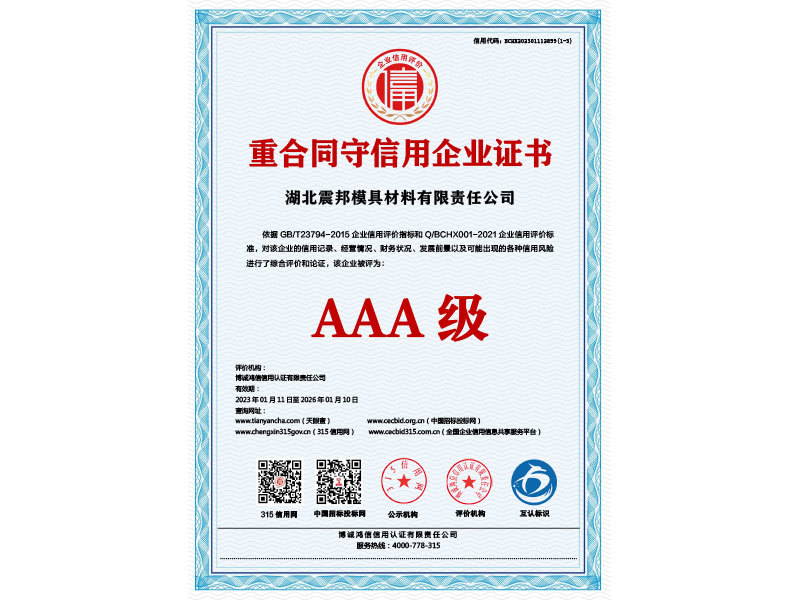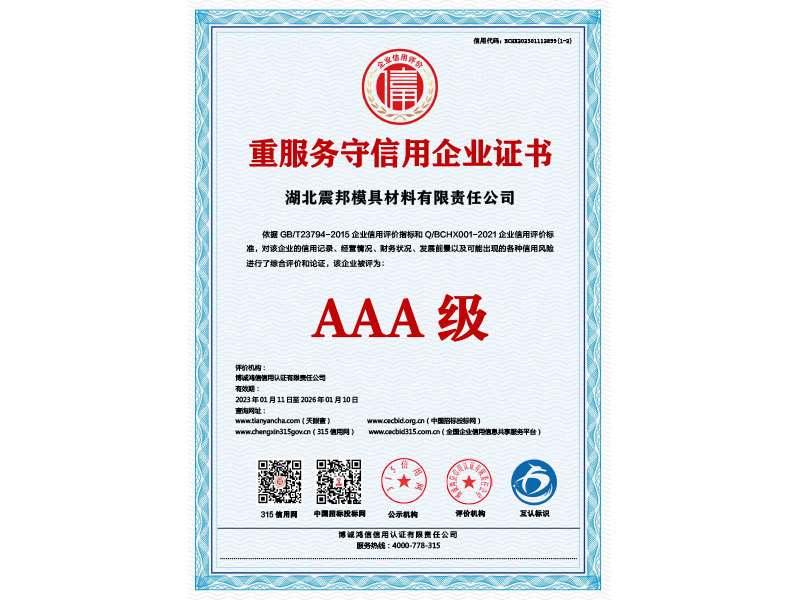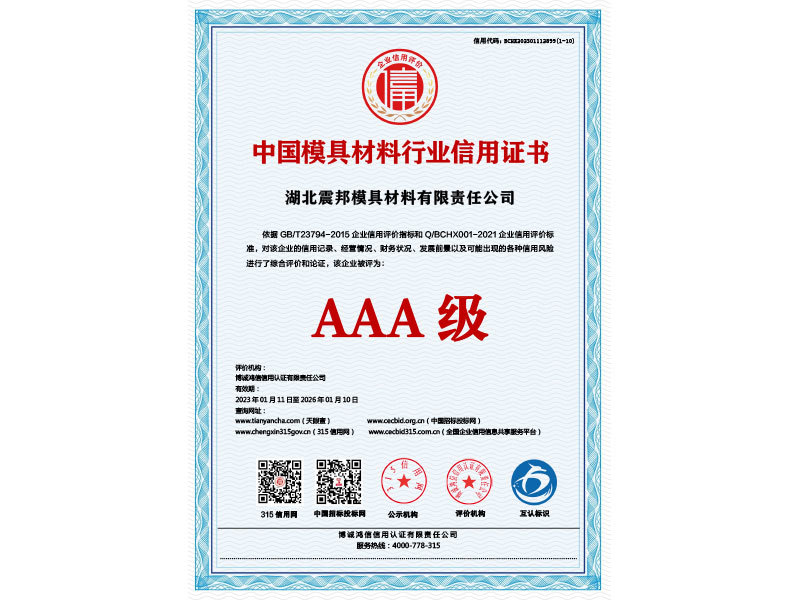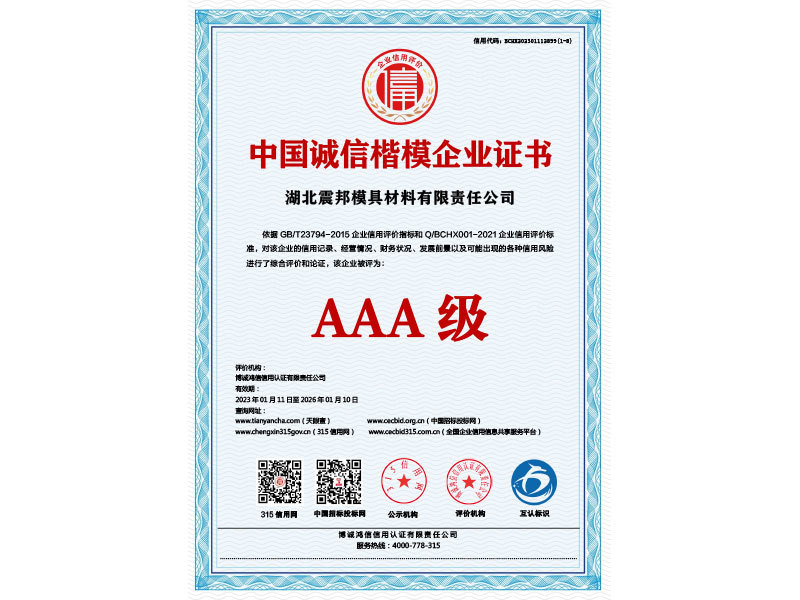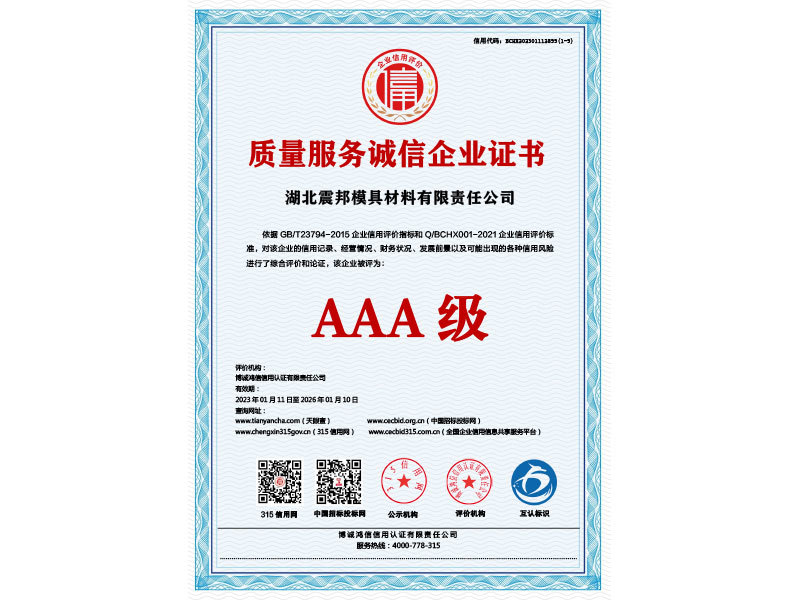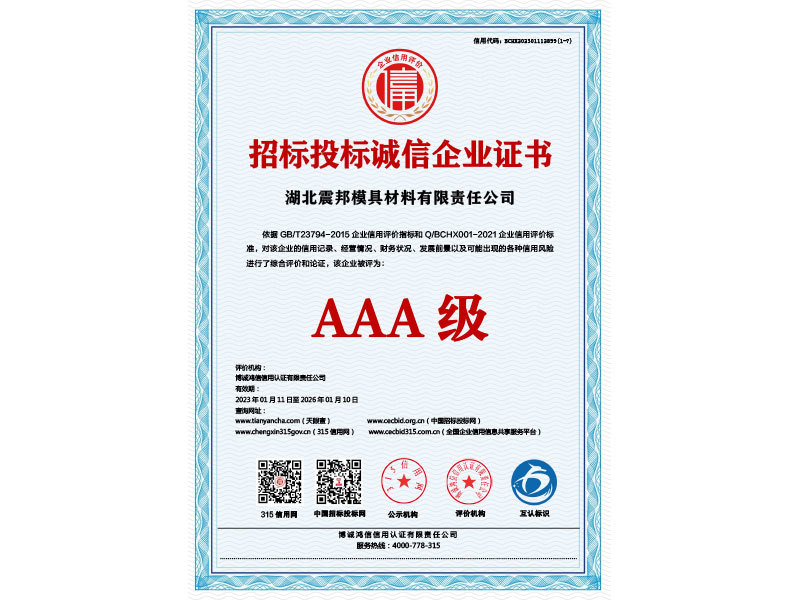5CrNiMo(SKT4)
Category:
With "high toughness + high hardenability + economy" as its core advantage, 5CrNiMo is a classic material in the field of heavy forging dies:
Contact:
Production Process









Details
China model:5CrNiMo
Japan: SKT4
USA: T61206
Germany: 55NiCrMoV6
Product Parameter
|
Steel grade(GB) |
Comparison of Steel Grades by Country |
Technical Conditions |
Chemical Constituents |
||||||||||||||
|
C |
Cr |
Mo |
V |
S |
P |
Si |
Mn |
Ni |
W |
Al |
Cu |
Nb |
Co |
B |
|||
|
5CrNiMo |
Germany(55NiCrMoV6) Japan(SKT4) USA(T61206) |
GB/T1299-1985
|
0.50 ¦ 0.60 |
0.50 ¦ 0.80 |
0.15 ¦ 0.30 |
0.80 ¦ 1.20 |
≤0.030 |
≤0.030 |
≤0.40 |
0.50 ¦ 0.80 |
1.40 ¦ 1.80 |
|
|
|
|
|
|
Product information
With "high toughness + high hardenability + economy" as its core advantage, 5CrNiMo is a classic material in the field of heavy forging dies:
Smelting method
Mainstream process: Electric arc furnace (EAF) primary smelting + LF ladle refining + VD vacuum degassing: control of sulfur (S ≤ 0.030%), phosphorus (P ≤ 0.030%) and gas content (H ≤ 2.0 ppm) to improve purity;
Upgrading process: electroslag remelting (ESR) is adopted for high-end batches to further reduce inclusions and optimize the uniformity of structure (oxygen content ≤ 12 ppm);
Blank type: Steel ingot: traditional method, yield 75% ~ 80%;
Continuous casting billet: the yield is 90% ~ 95%, the economy is better, but the shrinkage cavity and inclusion defects need to be controlled;
Process characteristics
Heat treatment process
|
Process |
Parameter |
Target effect |
|
Annealing
|
850~870℃ slow cooling to 500℃then air cooling |
Hardness ≤241 HB,the grain is refined |
|
Quenching |
830~860℃oil cooling(large mold pre-cooling to 750~780℃) |
Hardness 52~58 HRC |
|
Tempering |
adjustment according to use: |
Hardness 38~47 HRC,balance toughness |
Innovative technology
Quenching by mixing water and air: the combination of compressed air and water reduces the deformation and increases the service life by 30% (especially applicable to turbine blade forging dies);
Composite strengthening: nickel plating, rare earth boronizing, precooling and quenching, and high temperature tempering, which significantly improves wear resistance and thermal fatigue resistance;
Forging process
Multi-direction upsetting-drawing (forging ratio is more than or equal to 4), the initial forging temperature is 1100-1150 deg C, the final forging temperature is more than or equal to 850 deg C, and the abnormal bainite structure is avoided;
Purity
Key indicators:
|
Element |
Limit |
Control process |
|
Sulfur(S) |
≤0.030% |
LF refining desulfurization |
|
Phosphorus(P) |
≤0.030% |
|
|
HydrogenH) |
≤2.0 ppm |
VD vacuum degassing |
|
Inclusion |
coarse/fine series ≤ Grade 2.0 |
ASTM E45 standard |
Micro-structure
Annealed state: spherical pearlite + granular carbide (ideal hardness HB 200 ~ 220); Abnormal state: It is easy to generate feathery upper bainite or granular bainite (hardness 34 ~ 36 HRC) due to improper forging and cooling, which needs to be eliminated by spheroidizing annealing;
Quenched and tempered state: tempered sorbite/troostite matrix to ensure high toughness;
Impact work Impact
toughness at room temperature: ≥ 40 J (unnotched specimen), the nickel element significantly improves the impact resistance;
High temperature performance: the impact energy is only slightly reduced at 500 ℃, which is suitable for hot forging conditions;
Ultrasonic flaw detection
Standard: GB/T6402-91 Grade II or SEP 1921;
Level: Ordinary grade: defect ≤ Φ2 mm equivalent;
High quality: full section inspection, defect ≤ Φ1 mm equivalent (for aviation forging die);
Ex-Factory status
Annealed state: hardness ≤ 241 HB (smooth round/black fur round/polished surface);
Pr-hardening state: 38 ~ 45 HRC (to be customized by protocol);
Size specification
|
Type |
Specification Range |
Remarks |
|
Round steel |
Φ80~1000 mm × 4~18 m |
Max customize 18 m5 |
|
Square steel/module |
80~1000 mm(section) |
Forging weight ≤35吨 |
|
Steel ingot |
1~35t(ESR ingot ≤25t) |
Yield 75%~80% |
Main features
Ultrahigh toughness: nickel (Ni) content 1.4 ~ 1.8%, impact energy at room temperature ≥ 40 J, impact resistance to heavy load;
High temperature stability: hardness ≥ 300 HB at 500 ℃,
heat softening resistance; Excellent harden-ability: 500 mm section hardness fluctuation ≤ ± 2 HRC, suitable for large forging die;
Process compatibility: The surface nit-riding hardness reaches HV 800-1000, and the wear resistance is improved; Welding requires preheating at 300 ~ 350 ℃;
Product application area
|
Area |
Typical component |
Performance adaptation point |
|
Heavy Forging Die steel |
Automobile Crankshaft/Connecting Rod Forging Die (> 400mm) |
Impact Resistance + High Temperature Stability |
|
Hot extrusion tools |
Aluminum alloy extrusion cylinder, piercing plug |
thermal fatigue resistance + high thermal conductivity |
|
Hot shearing die |
Stainless steel hot trimming knife, stamping punch |
h High temperature hardness (42 ~ 47 HRC) |
|
In the mass production scenario |
the annual output of ≥ 100,000 pieces of forgings |
has outstanding cost performance (the cost is 60% of imported steel) |
Packing and shipping
Generally, packing and transportation will be arranged according to the customer's requirements, whether to pack and arrange the appropriate mode of transportation, vehicles, such as whether to directly load and transport, whether to pack steel belts, whether to pack and spray marks, etc.





Keywords:
5CrNiMo(SKT4)
FAQ
Q How should I choose the right die steel material for my die?
Ans: There are several key factors to consider when selecting a die steel, including: Mold use: injection molding? Die casting? Stamping? Cold work? Hot work? Processing material: plastic type (including glass fiber?) , metal type, yield requirements. Performance requirements: wear resistance, toughness, corrosion resistance, high temperature strength, polishing, dimensional stability. Budget: The price of different material grades varies greatly. Processing conditions: working temperature, stress, cooling mode. Suggestion: Provide as much detail as possible about the application of the die, or contact our technical sales team directly, and we will recommend the most suitable material grade according to your specific needs.
Q Is the die steel provided by you genuine? How to ensure the quality of materials?
Ans: Yes, the die steel we provide is produced and processed independently. We have long-term cooperation with first-line brands at national and abroad to ensure that all materials are genuine. We provide a complete original warranty (material certificate), including key data such as chemical composition and physical properties. We will also carry out strict factory re-inspection of some materials to ensure that the quality meets the standards.
Q The price of die steel fluctuates greatly. What are the main factors affecting the price?
Ans: The price of die steel is mainly affected by the following factors: Raw material cost: market price fluctuation of alloy elements (such as chromium, molybdenum, vanadium, tungsten, etc.). Production process: ESR, VD/VAR and other special processes increase the cost. Grade and brand of material: The price of material with high performance and famous brand is higher. Specifications and sizes: Premium prices may apply for special sizes, large sizes, or small quantities. Market supply and demand: changes in supply and demand in global and regional markets. Processing state: the price of pre-hard state (such as P20, 718, NAK80, etc.) Is higher than that of annealed state. We will provide a transparent and reasonable quotation according to the market situation.
Q What is time for delivery?
Ans: The delivery time depends on: Material inventory status: Common brands and specifications We usually have in stock, can achieve faster delivery (for example: 1-3 working days). Material specification and status: special size, uncommon brand or special treatment (such as pre-hardening, deep processing) may need to be ordered, the cycle is relatively long (for example: 1-6 weeks). Order size: Large orders may require coordinated production scheduling. Please tell us your specific requirements (brand, specification, status, quantity) at the time of inquiry, and we will provide the most accurate delivery information.
Q Can you provide heat treatment or processing services after the purchase of die steel?
Ans: Yes, we provide complementary professional services: Heat treatment: With professional heat treatment equipment (vacuum quenching, cryogenic treatment, tempering, etc.) And strict process control, we can provide customers with precise heat treatment services (according to material brand and hardness requirements). Finish machining: We can provide precision machining services such as milling, grinding (surface grinding, internal and external grinding), wire cutting, EDM, etc. According to customer's drawings. Please provide your specific needs (drawings, technical requirements), and we will evaluate and provide quotations and service programs.
Q The mold cracks and wears too fast during use. What are the possible reasons? Is it related to the material?
Ans: The causes of mold failure are complex and diverse, which may be related to materials, but also involve many links such as design, processing, heat treatment, service conditions, etc.: Material factors: improper selection of materials (performance does not match the working conditions), internal defects of materials (inclusions, segregation), counterfeit and shoddy materials. Heat treatment factors: Improper process leads to poor structure, uneven hardness and excessive residual stress. Design/processing factors: stress concentration, poor surface roughness, too deep tool marks. Usage factors: overload, insufficient lubrication, poor cooling, improper maintenance. Suggestion: In case of failure, please provide detailed information as much as possible (material grade, heat treatment status, photos of failure location, description of working condition). Our technical team can assist you in preliminary analysis to determine whether it is related to the material or provide suggestions for improvement.
Q Do you have a minimum order quantity (MOQ) requirement for your die steel products?
Ans: For the stock of conventional grades and specifications, we usually do not have strict MOQ restrictions, and can be purchased according to the actual needs of customers. For materials requiring special orders (such as unusual grades, special sizes, customized heat treatment/processing), Certain MOQ requirements may be set to ensure the economy of production, usually a minimum of 8 tons. Please consult our sales staff for specific MOQ before placing an order.
Q In addition to standard grades, can you offer special die steels with custom compositions?
Ans: We mainly deal in standard grades of die steel, which are widely proven to meet the needs of most applications. For the development of customized alloys with special performance requirements, this usually involves a large amount of R & D investment and production coordination, which is costly and takes a long time. We recommend that priority be given to the material closest to the demand from among the existing mature grades, or to meet special requirements by optimizing the heat treatment and surface treatment. If there is a need for customization, please specify the technical requirements and we will evaluate the feasibility.
Other Related Products
Qualifications
Production Equipment

Gantry Milling Machine

Lathe

Sawing Machine

3000-Ton Stamping Presses

Annealing Furnace

Laboratory Hydrogen Oxygen Nitrogen Gas Analyzer

Forge Hammer

Vacuum Degassing Furnace

Steelmaking Workshop Production

Steelmaking Production Operations

Production of Steel Ladles

Producing Electric Arc Furnace

Steel Production

Refined Furnace Exterior Photo

Refining Furnace Operating Room
Leave a message

Address: No. 128, Zhang Zhihe Avenue, Dapaishan Village, Xisaishan District, Huangshi City, Hubei Province


